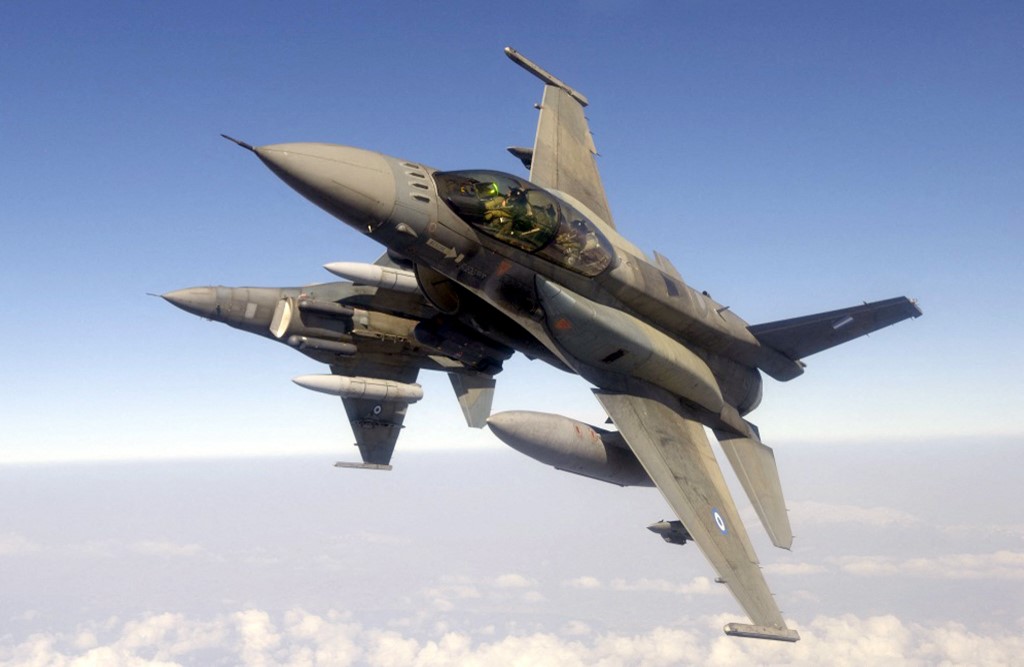Fatih Yurtsever*
Greece has recently accused Turkey of not respecting its sovereign rights because Turkish aircraft frequently violate its airspace in the Aegean. According to the Convention on International Civil Aviation, signed in 1944, a country’s airspace is the area above its land and territorial waters. Countries have complete and exclusive sovereignty over the airspace above their territory. In the Aegean, Greece claims that its airspace extends for 10 nautical miles, although its territorial waters are six nautical miles. Turkey, on the other hand, disputes this claim by Greece. The fact that the US has made the sale of F-16 Block 70 fighter jets and modernization kits to Turkey conditional on Greek airspace not being violated by Turkey has taken the airspace problem between Turkey and Greece, which has existed since 1974, to a new dimension. What is Turkey’s position regarding the limits of airspace in the Aegean? What does it mean for Turkey that the United States is making the sale of F-16s conditional on Turkey not violating Greek airspace?
According to international law, the boundary of a state’s territorial waters also constitutes the boundary of its airspace. Under the Treaty of Lausanne, the breadth of Greece and Turkey’s territorial waters in the Aegean was three nautical miles. Greece increased the width of its territorial waters to 10 nautical miles with a decree published on September 6, 1931 that states, “The extent of territorial waters is fixed at ten nautical miles from the coast of the State.” Greek airspace was automatically extended from three nautical miles to 10 nautical miles as Greece had increased the extent of its territorial waters from three to 10 nautical miles. This is because the extent of airspace should be the same as the extent of territorial waters.
However, Greece then enacted a law in 1936 setting the extent of its territorial waters at six nautical miles. Law No. 270, published on September 17, 1936, states: “The extent of the territorial sea is fixed at six nautical miles from the coast, without prejudice to provision in force on special matters with respect to which the territorial zone shall be delimited at a distance either larger or smaller than six nautical miles.” According to international law, Greece’s airspace should have been reduced from 10 nautical miles to six nautical miles in line with its territorial waters. Nevertheless, Greece continues to enforce the width of its airspace at 10 nautical miles, which is different from the width of its territorial waters. This difference of four nautical miles is the subject of an international paradox, which nevertheless had been in force for more than four decades without being challenged by any state, including Turkey itself.
However, Turkey has consistently objected to Greece’s 10-mile airspace claim since 1974. In summary, the problem between Turkey and Greece is that Greece is trying to set the width of its national airspace at 10 miles, even though it set its territorial waters at six nautical miles, and Turkey constantly objects to this. Greece accuses Turkey of violating its airspace when Turkish aircraft fly closer than 10 nautical miles from the coast.
The US has taken an impartial stance on the problems between Turkey and Greece, both of which are NATO members. Turkey’s acquisition of the S-400 air defense system from Russia led to tensions in Turkish-US relations. While relations between Turkey and the United States were strained, relations between Greece and the United States reached a strategic level. Greece has permitted the United States to use some naval and air bases on its territory. The US has thus softened its stance of not getting directly involved in Turkish-Greek problems in favor of Greece.
In April Turkey and Greece accused each other of violating airspace. Turkey reported to NATO that Greece violated Turkish airspace 30 times on April 26 and 28, 2022, while Greece claimed to have registered 168 airspace violations and 42 overflights of Greek islands in a single day on April 27, 2022, Kathimerini quoted Foreign Ministry spokesman Alexandros Papaoiannou as telling reporters in Athens. US Under Secretary of State for Political Affairs Victoria Nuland condemned the violations and Turkey’s flight over the Greek islands as “provocative,” the Greek Kathimerini newspaper reported. Nuland also reiterated that Turkey had requested the purchase of 40 Block 70 F-16 fighter jets and 80 modernization packages for its existing F-16s.
In 2021 Turkey had made an official request to purchase 40 F-16s and 80 modernization kits for its existing F-16s. US President Joe Biden said on June 30 at a NATO summit in Madrid that he supported the sale of the F-16 fighter jets to Turkey. However, the US House of Representatives passed the National Defense Authorization Act (NDAA) on July 14, which includes a measure that restricts the sale of F-16s and modernization kits to Turkey and would prevent the US from selling or transferring the fighter jets to Turkey unless the government certifies that it’s essential to US national security and as long as Turkey does not conduct unauthorized overflights of Greece with the new F-16s, Reuters reported.
In an interview with Al Jazeera television, Turkish Defense Minister Hulusi Akar said that if the US makes the sale of F-16 warplanes subject to certain conditions, Turkey as a sovereign state cannot accept it.
Consequently, setting Greek airspace at 10 miles is not an acceptable situation under international law. If what the Greek side claims is true, then the overflight of Greek islands by Turkish fighter jets should also be considered airspace violations. The fact that the US has made the sale of Turkish F-16s conditional on not using the aircraft to violate Greek airspace indicates that the US may be taking a partisan stance on Turkish-Greek problems in favor of Greece. For this reason, it can be said that Turkish-American relations will likely soon face new crises.
* Fatih Yurtsever is a former naval officer in the Turkish Armed Forces. He is using a pseudonym out of security concerns.


